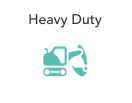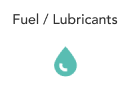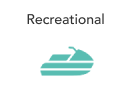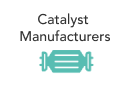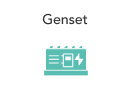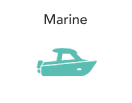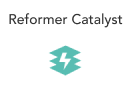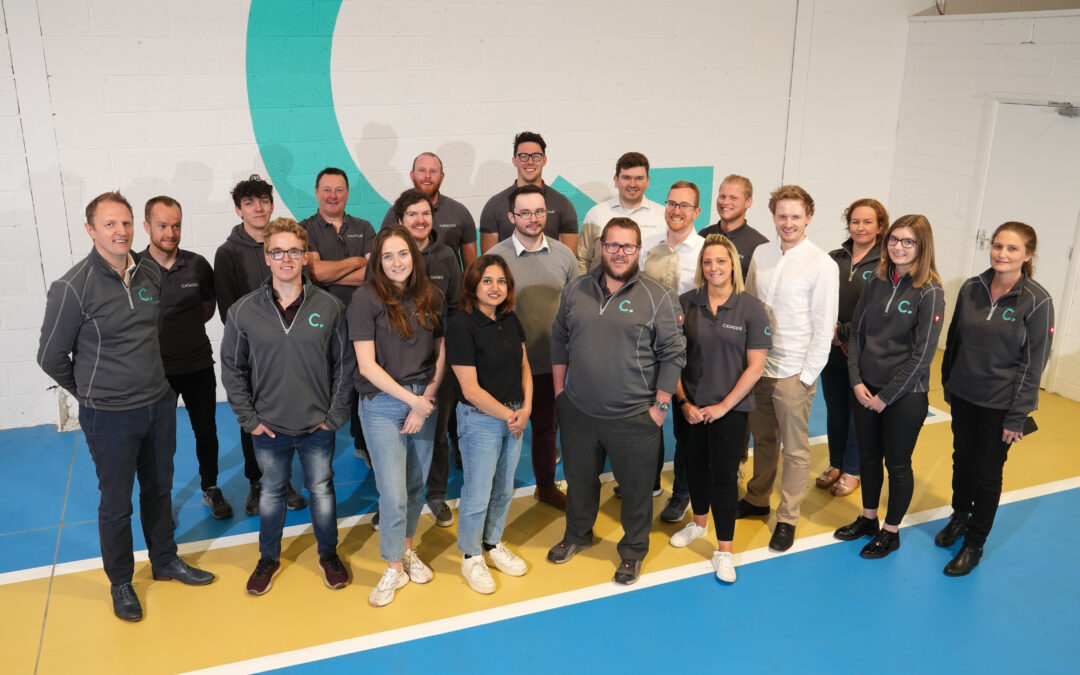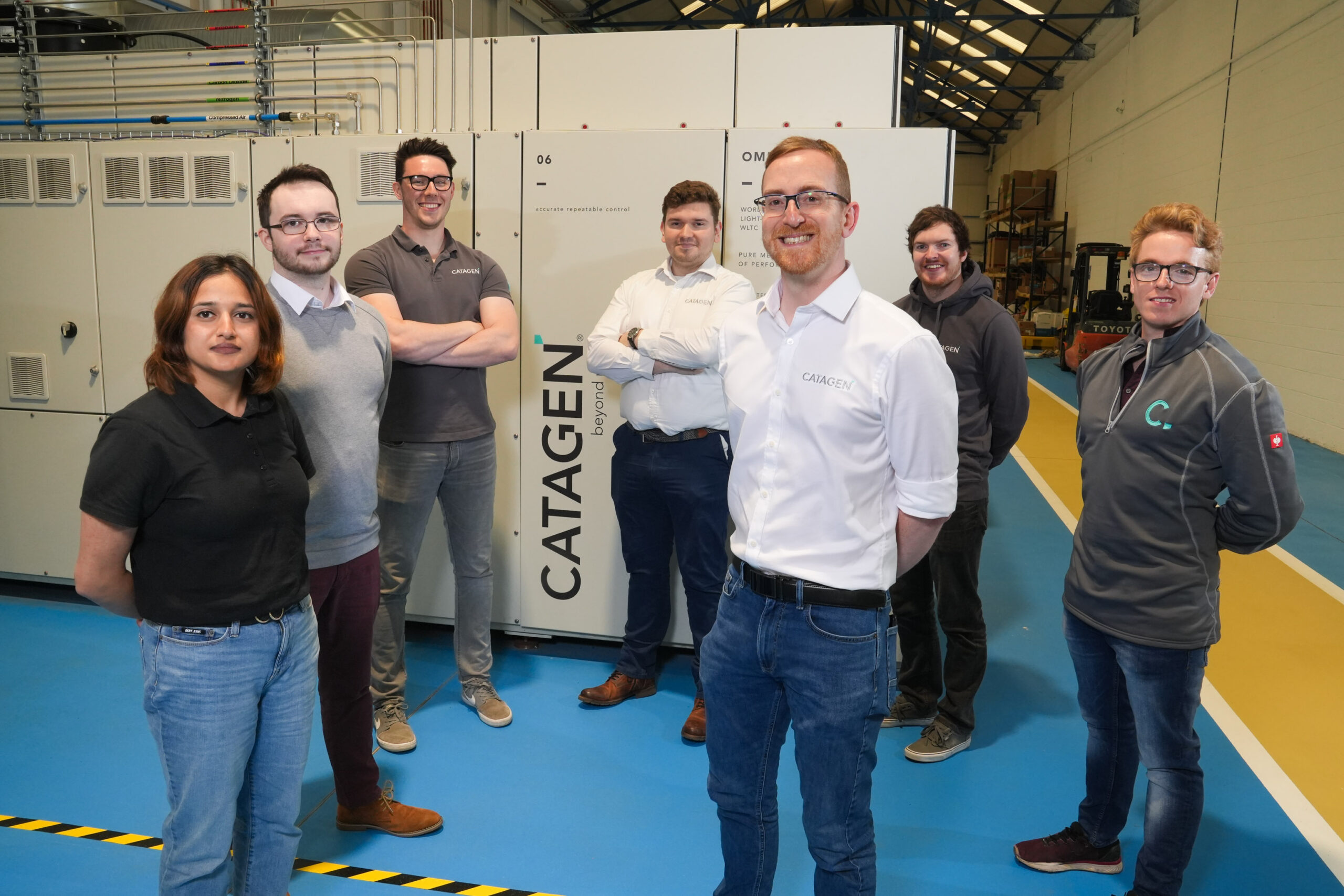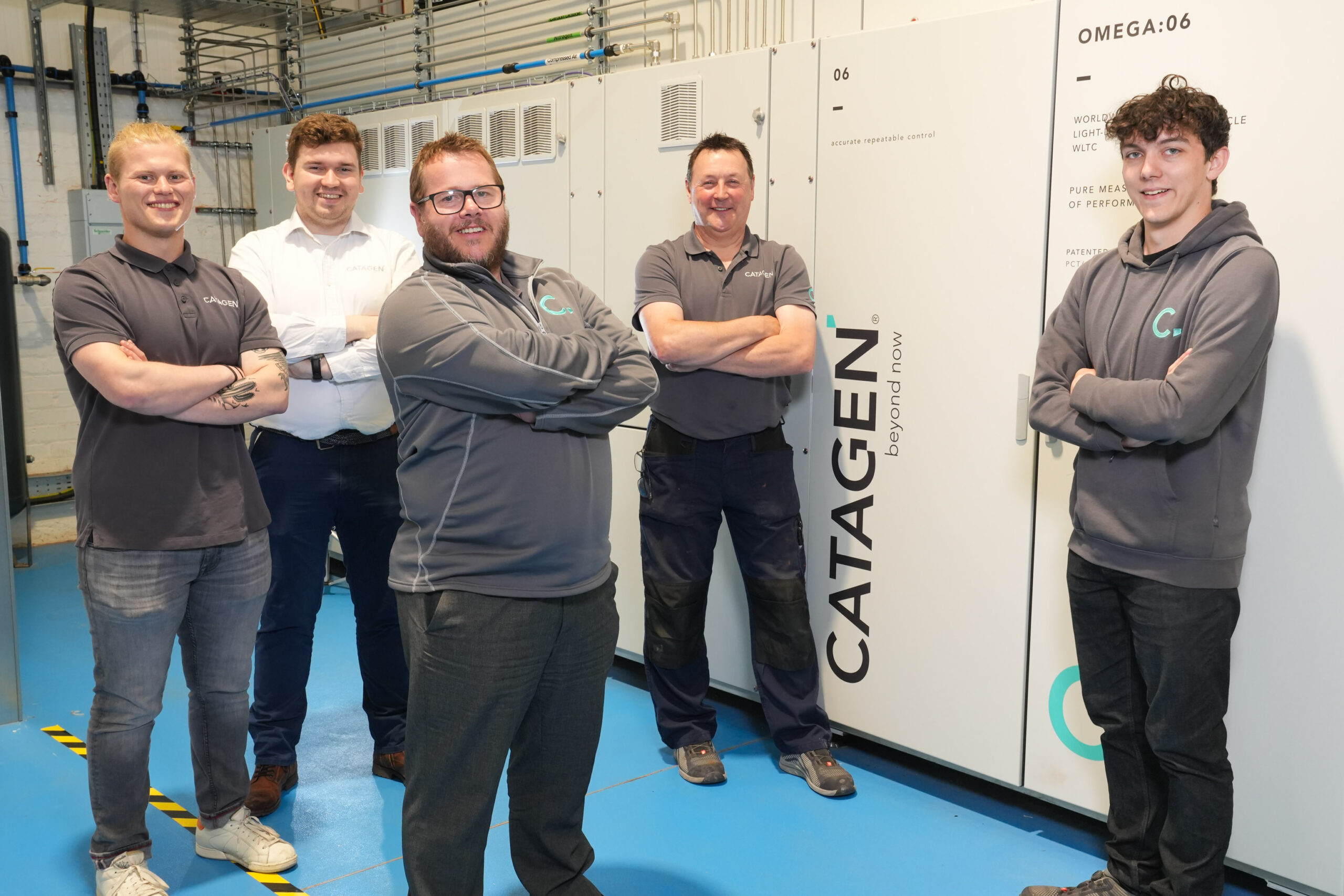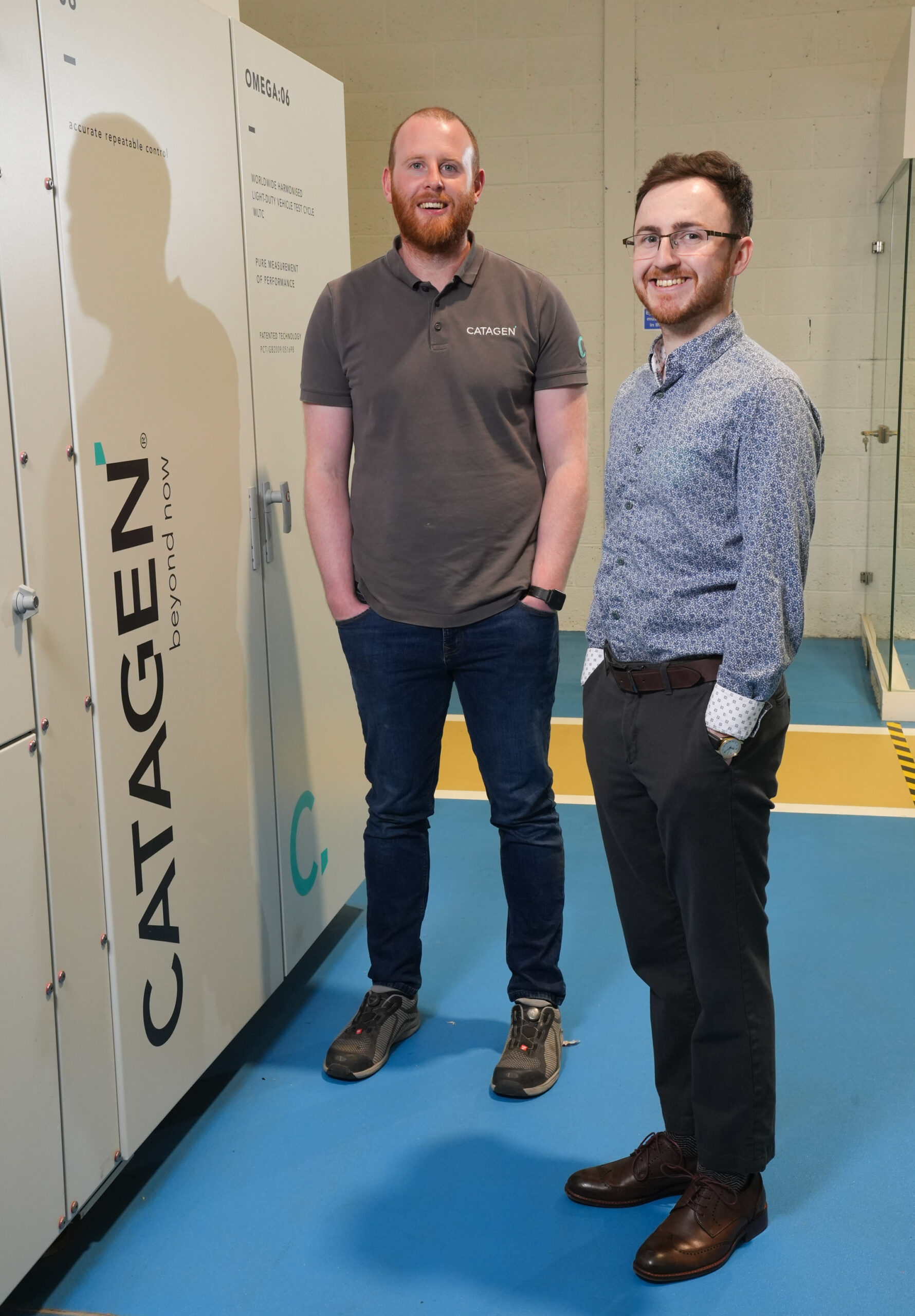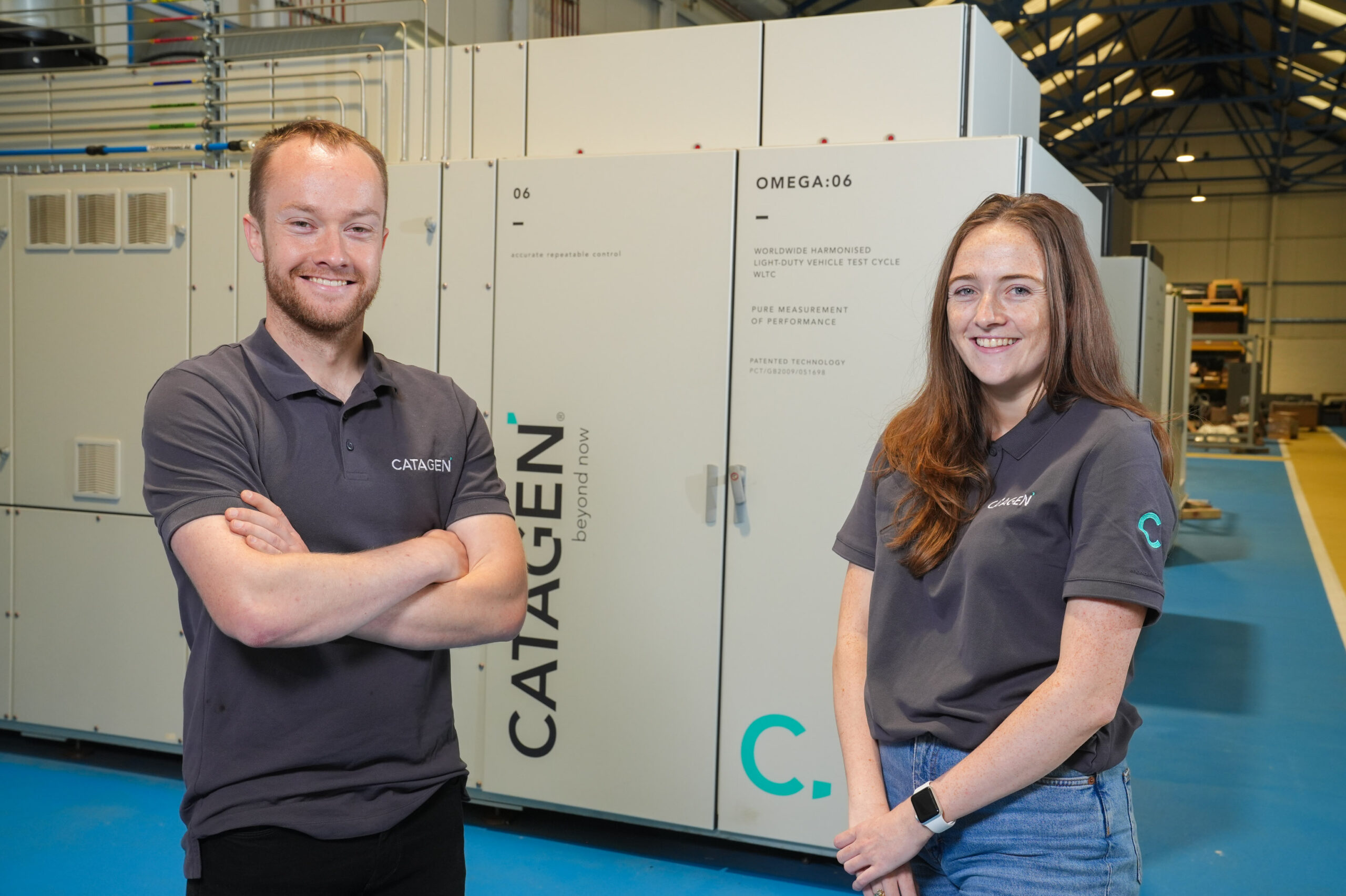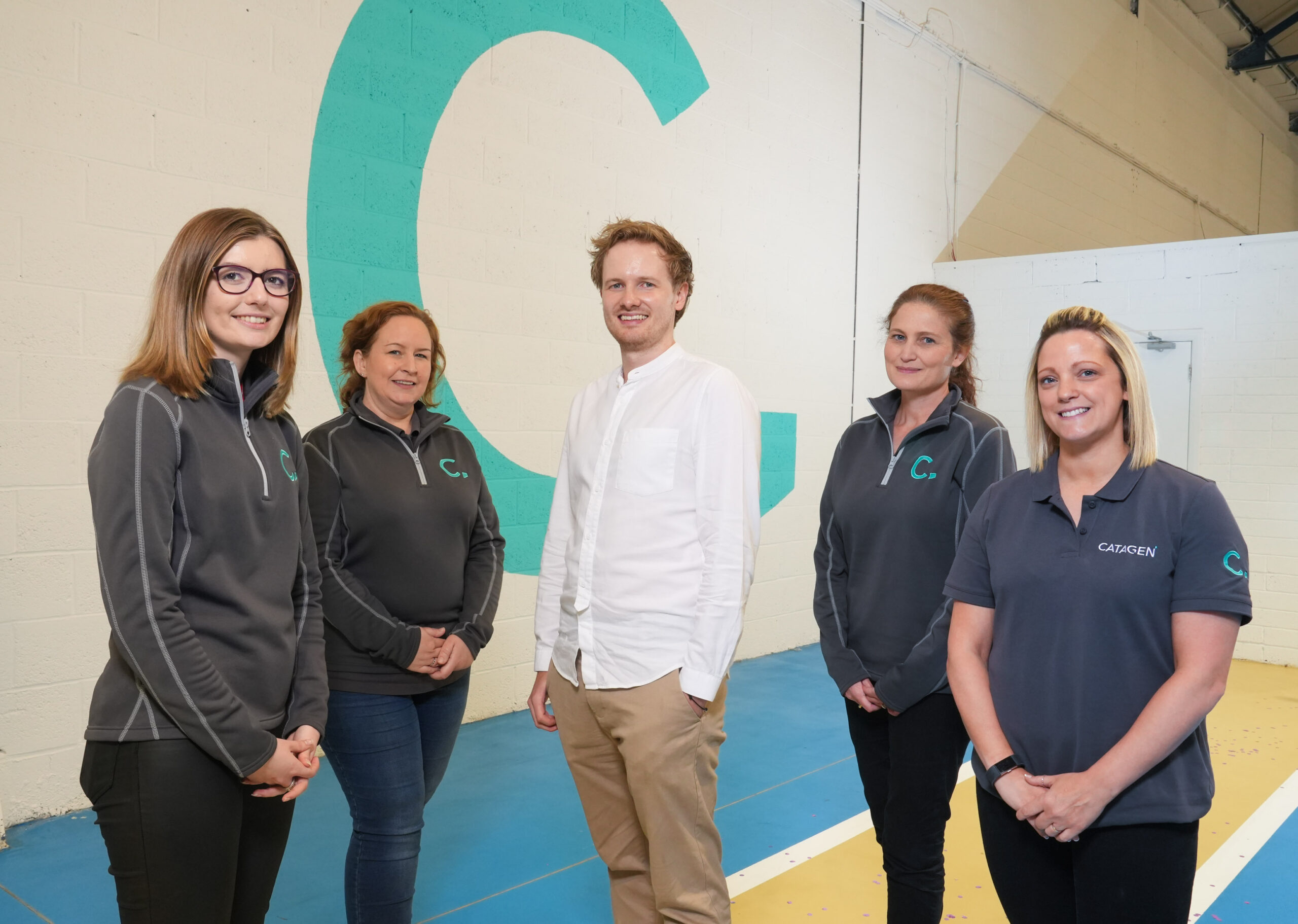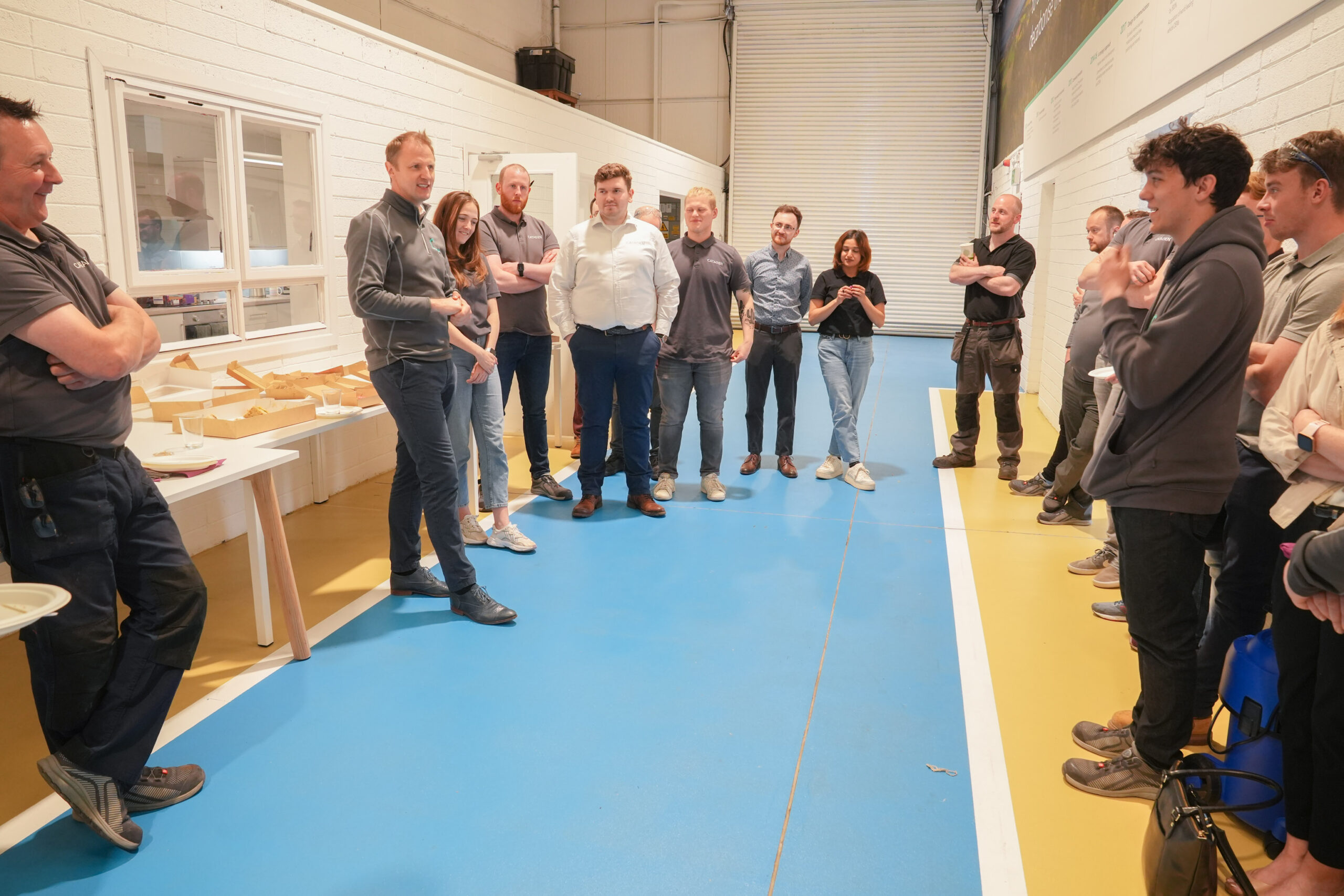CATAGEN has received two new funding awards from the UK’s Department for Business, Energy and Industrial Strategy (BEIS), funded through the Net Zero Innovation Portfolio, as part of the Red Diesel Replacement Competition.
The awards follow the two separate awards received by CATAGEN last month through BEIS’s Net Zero Innovation Portfolio Low Carbon Hydrogen Supply 2 Competition for the development of green hydrogen production and a liquid hydrogen fuel carrier.
A successful outcome from the first phase of all four projects in 2022 will lead to significant funding for the company.
CATAGEN, a spin-out from Queen’s University Belfast, already sells its patented emissions testing services to global automotive manufacturers and is approved by the UK Vehicle Certification Agency and Europe’s Applus IDIADA. Its expertise in the mobility sector combined with its deep domain knowledge of global emissions regulatory standards and patented technology has led the company to patent further technologies to reduce emissions in the race to net zero.
The BEIS funding will enable the company to significantly scale in Belfast to develop new net zero technologies in green hydrogen and e-fuel production to decarbonise difficult sectors such as transport and industry.
The latest funding announced by BEIS aims to help industry move away from using red diesel, also known as gas oil – a type of fossil fuel commonly used for off-road vehicles and machinery, specifically in the quarrying, mining, and construction sectors. CATAGEN has been successful in receiving two awards for the development of High-Pressure Hybrid Pumping for Hydrogen Storage and Dispensing and the development of an E-Fuel as a replacement for red diesel.
CATAGEN has already doubled its workforce in the past year to a team of 35 and hopes to double again over the next year. The funding awards are a potential game-changer for the company and for Northern Ireland in building a new green industry in the production of green hydrogen and e-fuels, which could lead to a massive export opportunity in net zero technology and equipment to help decarbonise our economy.
Professor Roy Douglas, CTO and Co-Founder of CATAGEN said
“E-Fuels are needed to provide an alternative solution to electrification for sectors such as aviation, marine, heavy-duty diesel and heating systems that use liquid fuels. A blended solution of technologies is needed to meet Net Zero emissions targets by 2050. Some of our existing business partners have already expressed interest in piloting CATAGEN’s E-fuel as it can be used in a conventional internal combustion engine and utilises existing infrastructure.”
Energy and Climate Change Minister Greg Hands said:
“As we accelerate the UK’s energy independence by boosting clean, home-grown, affordable energy, it’s crucial that our industries reduce their reliance on fossil fuels. This investment will help them to not only cut emissions, but also save money on energy bills, on top of supporting jobs by encouraging green innovation across the UK.”
Notes:
CATAGEN provides a range of emissions tests for aftertreatment systems to leading global auto and motorcycle companies, replicating what an engine can do for:
– Standard gasoline or diesel
– Hybrid powertrains
– E-Fuels, hydrogen combustion, biofuels, ethanol engines or natural gas engines
As aftertreatment emissions specialists CATAGEN are delivering advanced solutions that will have direct impact on our cities and air quality. Reducing tailpipe emissions remains one of the biggest challenges facing the global automotive industry. Reaching a solution involves precision testing and we have unrivalled expertise through our research, software and patented testing technology.
This expertise is now leading to the development of new Net Zero Technologies to further reduce emissions including the production of green hydrogen, e-fuels and a personalised emissions data platform that will track the emissions pollution created by a user’s vehicle.
CATAGEN has received 4 awards from the Department for Business, Energy & Industrial Strategy:
BEIS’s Red Diesel Replacement Competition
- High Pressure Hybrid Pumping System for Hydrogen Storage and Dispensing
This project looks to develop an alternative approach that overcomes issues with current methods of delivering high pressure hydrogen for storage, transportation and dispensing at fuelling stations with a new system and process. Existing methods employ large gaseous compressors with intercoolers to deliver hydrogen gas. These methods are relatively inefficient, expensive to manufacture and display various operational issues in use, such as overheating and high fuelling times.
- E-fuel as a drop-in replacement for red diesel
The project is to determine the feasibility of developing new capabilities and technologies to combine with known recirculating gas reactor test technology to yield a production machine and process that can produce an easily transportable green Ediesel. This new process will utilise green hydrogen and CO2 sequestered from the air as feedstock, with the proposed new technology production reactor and process to be powered using renewable electricity resulting in a carbon NET ZERO process. The output of the project will mean Ediesel can be produced at a renewable energy site alongside green hydrogen production.
BEIS’s Net Zero Innovation Portfolio Low Carbon Hydrogen Supply 2 Competition
- Low cost production of green hydrogen gas using enhanced recirculating gas reactor technology
This project combines CATAGEN’s recirculating gas reactor technology to create a production machine for high-efficiency green hydrogen production. The process uses water as the net feedstock and renewable electricity enabling zero-carbon H₂ production.There are no electrolysers used in this process; the proposed CATAGEN Green Hydrogen Generator uses a multi-stage thermochemical process in a recirculating reactor to split water with an energy cost of less than 55 kWh/kgH₂. In addition, the proposed solution has an estimated CO₂ saving of 2.8 kgCO₂/kgH₂ during production compared to electrolysis.
The output of the project will mean green hydrogen can be produced with reduced energy input, reduced operating costs and lower capital expenditure compared to conventional methods. Further efficiencies are possible due to the high thermal inertia proposed with such a system, allowing maximum energy utilisation from fluctuating power supplies. This means renewable energy can be better utilised for hydrogen production and the cost of production reduced. As experts in recirculating gas reactor technology, CATAGEN is ideally placed to develop this technology taking it through to production.
- Low Cost Production of Liquid Hydrogen Fuel Carrier Using Enhanced Recirculating Gas Reactor Technology
The objective of this project is to determine the feasibility of developing new capabilities and technologies to combine with known recirculating gas reactor test technology to yield a production machine and process that can produce green syngas with a subsequent second stage reaction to a high density, easily transportable green e-fuel (such as a long chain hydrocarbon). This new process will utilise green hydrogen and CO₂ sequestered from the air as feedstock, with the proposed new production reactor and process to be powered using renewable electricity – resulting in a carbon net-zero, hydrogen-based fuel which can be utilised to help decarbonise existing fleet and difficult sectors such as marine and aviation.
The calculated energy to generate 1kg of e-gasoline using this method is 6.5kWh, which is comparable to the energy for compression of 1kg of H₂ for high pressure storage, and ≈10% of the energy required to generate 1kg H₂. The output of the project will mean e-fuel can be produced at a renewable energy site alongside hydrogen production.
Find out more here
Department for Business, Energy & Industrial Strategy
The Department for Business, Energy, and Industrial Strategy (BEIS) brings together responsibilities for business, industrial strategy, science, research & innovation, energy & clean growth, and climate change.
This funding has been made available from the government’s £1 billion Net Zero Innovation Portfolio, which looks to accelerate the commercialisation of low-carbon technologies and systems, through its Red Diesel Replacement competition.
More CATAGEN Content:


